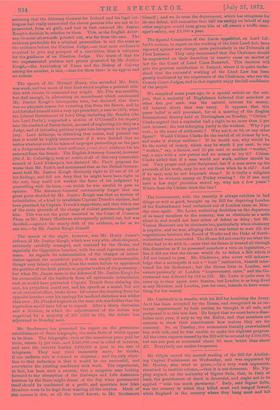We remarked some years ago, in a special article on
the sub- ject, that a majority of Englishmen believed that somehow or other five per cent. was the natural interest for money. All interest above that was usury. It appears that this queer belief is still prevalent, for at a meeting of the English International Society held at Nottingham on Sunday, " Citizen" Clarke argued that a capitalist had a right to-no more than 5 per cent. interest; the rest belonging justly to the workers. Why 5 per cent., in the name of arithmetic ? Why not 3, or 30, or any other figure? Would Citizen Clarke fix the rental of all houses by law, and make it always uniform ? If he would not, why would he fix the rental of money, which may be worth 5 per cent. to one " worker," say, a farmer, and 50 per cent to another " worker," say, a man with a new patent and no money to try it? Citizen Clarke added that if a man would not work, neither should be eat. Very proper and quite Scriptural, but if a man saves up the proceeds of his work, may he not eat them when he is old ? And if he may, may he not bequeath them ? Is it really a religious duty to be without money on Friday evening? Or if one may have a few days' provision stored up, why not a few yews' ? Where does the Citizen draw the line?


































 Previous page
Previous page